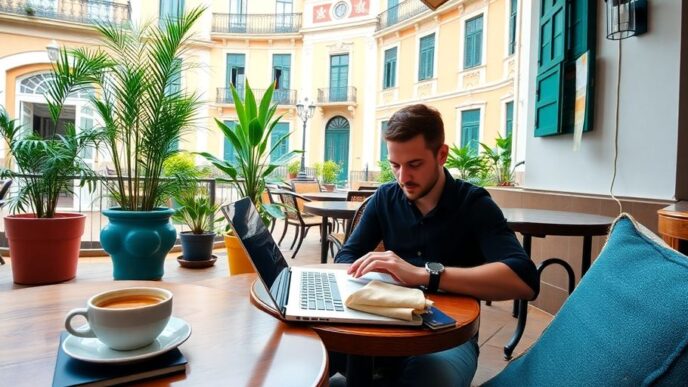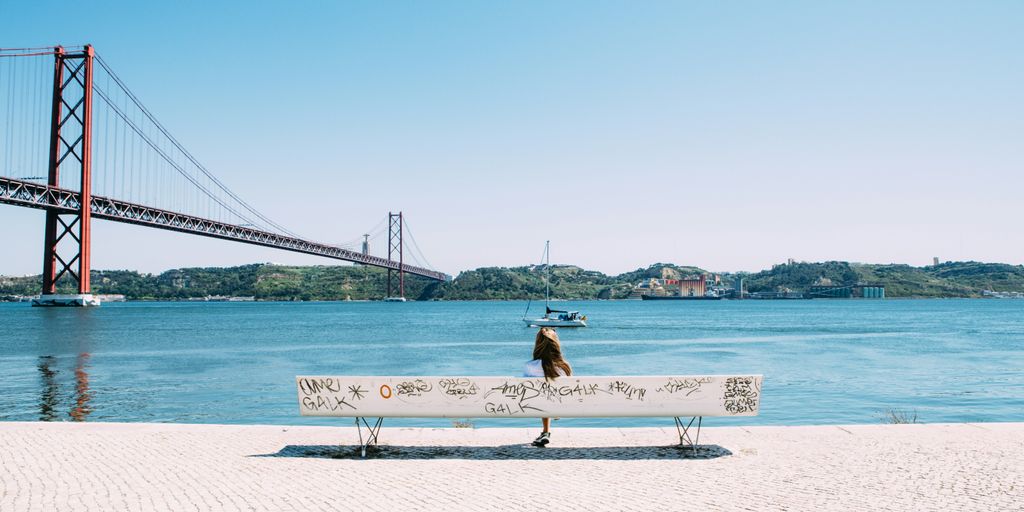Understanding the Process of Buying Property in Portugal

Steps to Purchase Real Estate
- Get a Portuguese Tax Number (NIF): This is essential for any property transaction in Portugal. You can obtain it at a local tax office.
- Find Your Property: Research online and visit properties that interest you. Consider factors like location and amenities.
- Make an Offer: Once you find a suitable property, negotiate the price with the seller. This is a common practice in Portugal.
- Sign the Promissory Contract: After agreeing on a price, you’ll sign a contract called the Contrato de Promessa de Compra e Venda. This contract is witnessed by a notary.
- Complete the Purchase: Finally, you’ll sign the final deed, known as the Escritura, to officially transfer ownership.
Required Documentation
To buy property in Portugal, you will need:
- A valid passport or ID.
- Your Portuguese Tax Number (NIF).
- Proof of income or financial stability, especially if applying for a mortgage.
- A notary to witness the signing of contracts.
Legal Considerations for Foreign Buyers
- Hire a Local Lawyer: It’s wise to consult a lawyer familiar with Portuguese property laws to help navigate the process.
- Due Diligence: Ensure that the property has no outstanding debts or legal issues. Your lawyer can assist with this.
- Notary’s Role: A notary is required to ensure that the property transaction is legally binding and properly registered. They will also verify the seller’s ownership and any restrictions on the property.
In summary, buying property in Portugal involves several steps, from obtaining necessary documents to understanding legal obligations. It’s crucial to do thorough research and seek professional help to ensure a smooth transaction.
Navigating Portuguese Property Taxes

When buying property in Portugal, understanding the taxes in Portugal is crucial. Here’s a breakdown of the main taxes you’ll encounter:
Property Purchase Tax
- The Imposto Municipal sobre as Transmissões Onerosas de Imóveis (IMT) is the main tax when you buy property.
- The rate varies based on the property’s value and whether it’s your main home or a second residence.
- Typical rates are:
- Rural properties: 5%
- Urban residential properties: Up to 7.5%
Municipal Property Tax
- Known as Imposto Municipal Sobre Imóveis (IMI), this tax is similar to council tax in the UK.
- Most areas charge between 0.3% to 0.45% of the property’s assessed value.
- Rural properties may have a higher rate of around 0.8%.
Annual Taxes on High-Value Properties
- If you own properties valued over €600,000, you’ll pay the Adicional Imposto Municipal Sobre Imóveis (AIMI).
- This tax is typically 0.7% for individual owners and varies for properties owned through companies.
Understanding these taxes will help you budget better and avoid surprises. Always consider consulting a tax professional to navigate the complexities of tax laws in Portugal.
Exploring the Golden Visa Program
The Golden Visa Program in Portugal is a popular way for non-EU citizens to gain residency through investment. Here’s what you need to know:
Eligibility Criteria for Golden Visa
To qualify for the Golden Visa, you must meet certain requirements:
- Investment Amount: You need to invest at least €280,000 in real estate in a low-density area or €500,000 in other properties.
- No Criminal Record: Applicants must have a clean criminal record in their home country.
- Health Insurance: You must have valid health insurance in Portugal.
Investment Options for Golden Visa
There are several ways to invest:
- Real Estate: Buying property is the most common option.
- Capital Transfer: You can transfer a significant amount of money to Portugal.
- Job Creation: Creating jobs for Portuguese citizens can also qualify you.
Benefits of the Golden Visa Program
The Golden Visa offers many advantages:
- Residency: You can live, work, and study in Portugal.
- Travel: It allows visa-free travel within the Schengen Area.
- Path to Citizenship: After five years, you can apply for permanent residency or citizenship.
This guide explores investment opportunities in Portugal, emphasizing the lucrative real estate market, including buy-to-let and renovation strategies. It highlights the Golden Visa program, which offers residency to foreign investors, and outlines eligibility criteria and benefits. The guide also discusses financing options, cultural insights for investors, and the importance of understanding local laws. Key regions for investment include Lisbon, Porto, and the Algarve, making Portugal an attractive destination for both new and experienced investors.
Financing Your Property Purchase in Portugal
When buying property in Portugal, understanding your financing options is crucial. Here’s a breakdown of what you need to know:
Mortgage Options for Foreign Buyers
- Types of Mortgages: Foreigners can choose between different mortgage types, including fixed-rate and variable-rate loans.
- Down Payment Requirements: Typically, non-residents need to provide a down payment of around 30% of the property price.
- Interest Rates: Rates can vary, so it’s wise to shop around and compare offers from various banks.
Down Payments and Lending Terms
- Initial Costs: Be prepared for additional costs like taxes and fees, which can add up to 10-15% of the property price.
- Monthly Payments: Ensure that your monthly mortgage payments do not exceed 35-40% of your net income to maintain financial stability.
- Loan Duration: Mortgages in Portugal can range from 10 to 30 years, depending on the lender and your financial situation.
Insurance Requirements
- Home Insurance: Most lenders will require you to have home insurance to protect your investment.
- Life Insurance: Some banks may also ask for life insurance to cover the mortgage in case of unforeseen events.
- Legal Insurance: Consider getting legal insurance to cover any potential legal issues that may arise during the property purchase process.
Understanding these aspects will help you navigate the financing process more smoothly and make informed decisions when purchasing property in Portugal. Remember, it’s essential to consult with financial advisors or mortgage brokers to find the best options for your situation.
Choosing the Right Location in Portugal

When it comes to buying property in Portugal, choosing the right location is crucial. Each region offers unique benefits, so it’s important to consider what fits your lifestyle and investment goals. Here are some popular areas to think about:
Popular Regions for Property Investment
- Algarve: Known for its stunning beaches and vibrant tourist scene, the Algarve is a top choice for many buyers. It features a variety of properties, from beachfront villas to cozy apartments with ocean views.
- Lisbon: The capital city is rich in history and culture. While property prices can be higher here, Lisbon offers great potential for both living and investment.
- Porto: This charming city is famous for its wine and beautiful architecture. Porto has a growing property market with many affordable options in various neighborhoods.
Urban vs. Rural Property Options
- Urban Areas: If you enjoy city life, consider properties in Lisbon or Porto, where you can find modern amenities and a lively atmosphere.
- Rural Areas: For a quieter lifestyle, look into the countryside, where you can find traditional cottages and spacious land at reasonable prices.
Factors to Consider When Choosing a Location
- Budget: Determine how much you can spend, as prices vary significantly between regions.
- Lifestyle Preferences: Think about whether you prefer a bustling city or a peaceful rural setting.
- Future Growth: Research areas with potential for property value increase, especially those popular with tourists.
Choosing the right location can make a big difference in your property investment journey in Portugal!
Managing Your Property in Portugal
Owning property in Portugal can be rewarding, but it also comes with responsibilities. Here’s how to effectively manage your property:
Hiring Property Management Services
- Consider a property manager: A good property manager can help you handle the day-to-day tasks of managing your property. They typically charge a fee of 7 to 20 percent of your rental income.
- Look for local expertise: Choose a property manager who knows the local market well. They can help you set the right rental price and find reliable tenants.
- Check reviews and references: Before hiring, read reviews and ask for references to ensure you’re choosing a reputable service.
Rental Income Potential
- Understand the rental market: Research the demand for rentals in your area. This will help you set competitive prices.
- Consider seasonal rentals: Depending on the location, short-term rentals can be more profitable, especially in tourist areas.
- Keep track of expenses: Monitor your income and expenses to ensure your rental is profitable. This includes maintenance costs and property taxes.
Maintenance and Upkeep
- Regular inspections: Schedule regular checks to ensure everything is in good condition. This can prevent larger issues down the line.
- Hire local contractors: For repairs and maintenance, find local professionals who can respond quickly to any issues.
- Budget for repairs: Set aside funds for unexpected repairs to keep your property in top shape.
Managing your property effectively can enhance its value and ensure a steady income stream. By hiring the right services and staying on top of maintenance, you can enjoy the benefits of property ownership in Portugal.
Common Pitfalls When Buying Property in Portugal
When purchasing property in Portugal, there are several common pitfalls that buyers should be aware of to ensure a smooth transaction. Here are some key issues to consider:
Lack of Due Diligence
- Neglecting property checks: It’s crucial to ensure that the property is well-maintained and free of legal issues. Without proper checks, you might face unexpected repairs or legal troubles.
- Hiring a property manager: Consider hiring a property manager to conduct thorough inspections and due diligence on your behalf.
Incorrect Location Choice
- Evaluate the area: Make sure the location meets your needs. Spend time in the neighborhood to understand the environment and amenities.
- Proximity to essentials: Check how close the property is to schools, shops, and public transport, especially if you have a family.
Hidden Costs
- Be aware of extra fees: Costs like notary and registration fees can add up. Always ask your real estate agent for a clear breakdown of all potential expenses.
- Budget for taxes: Understand the various taxes involved, such as property transfer tax and annual property taxes, to avoid surprises later.
Legal Complications
- Importance of legal assistance: Always work with a qualified lawyer to navigate the legal aspects of the purchase. They can help verify the property title and ensure there are no outstanding debts.
- Check the deeds: Make sure all legal documents are accurate to prevent future disputes.
By keeping these common pitfalls in mind, you can make informed decisions and enjoy a successful property purchase in Portugal.
Frequently Asked Questions
Can foreigners buy property in Portugal?
Yes, foreigners can buy property in Portugal without any special restrictions. Whether you want to live there or use it as an investment, you’re free to purchase.
What is the Golden Visa program?
The Golden Visa program allows foreigners to get a residency permit by investing in property in Portugal. This means you can live and work there.
What documents do I need to buy property?
To buy property, you’ll need a Portuguese tax number, a valid ID, and any financial documents like bank statements.
Are there taxes when buying property in Portugal?
Yes, there are taxes like the Property Purchase Tax and annual property taxes that you need to consider when buying.
Do I need a lawyer to buy property in Portugal?
While it’s not required, hiring a lawyer can help you understand the legal process and avoid problems.
What are the benefits of owning property in Portugal?
Owning property in Portugal can provide you with a place to live, potential rental income, and the chance to apply for residency.












